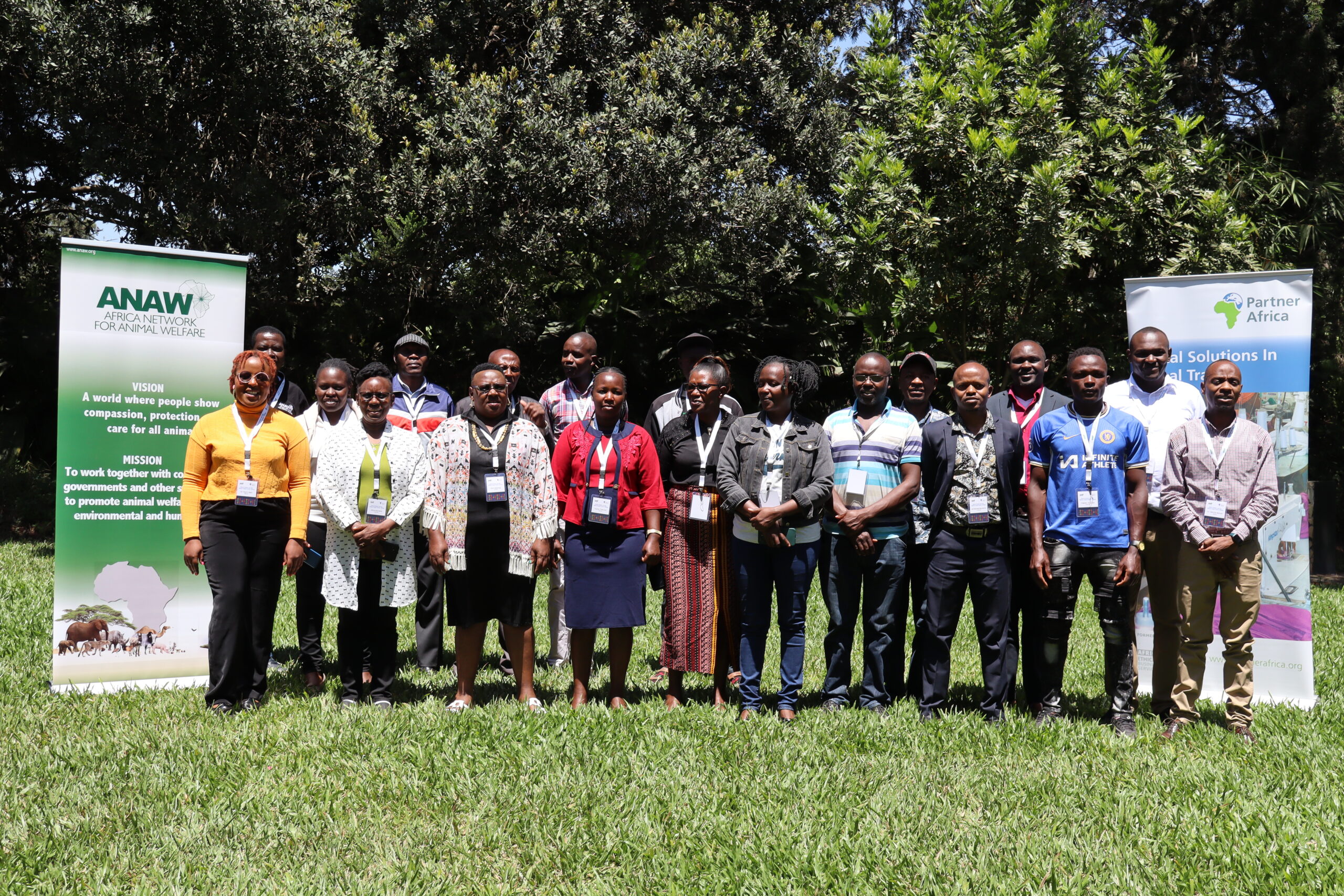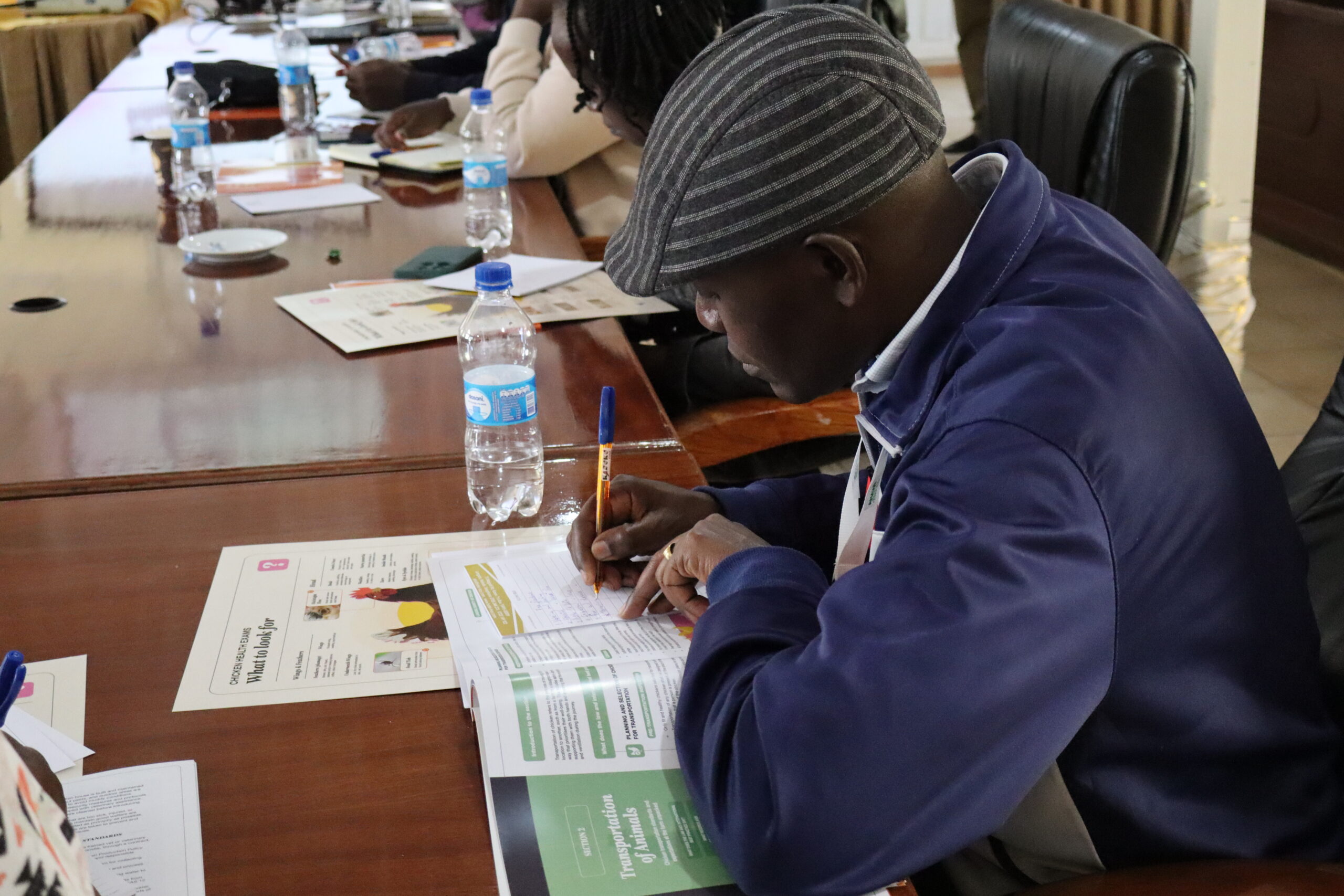By Lenah Bosibori
Nairobi, Kenya: Experts in the poultry industry are raising alarm over the increasing threat of Antimicrobial Resistance (AMR) to public health. They caution that the improper use of antibiotics in poultry farming mostly when farmers fail to follow veterinary prescriptions is fueling the rise of drug-resistant pathogens that may then be passed on to humans through consumption.
Speaking recently during a poultry farmers training in Nairobi Dr. Alynn Njeri, a veterinarian at the Africa Network for Animal Welfare (ANAW), emphasized the need for responsible use of antibiotics in chicken farming.
“It’s crucial that farmers administer the correct antibiotics and consult veterinarians early for accurate diagnoses. Misusing antibiotics allows pathogens to develop resistance, and once chickens retain microbial residues, consumers are at risk of developing AMR,” she explained.

AMR occurs when bacteria or other pathogens become resistant to antibiotics, making standard treatments ineffective. “When we misuse antibiotics, the pathogens develop resistance, and the antibiotics fail to cure common infections,” Dr. Njeri added.
Dr Njeri was speaking in regards to the findings from a pilot project and assessment they conducted together with partners with local farmers in counties nearing Nairobi. The pilot project identified several gaps in the poultry production chain in animal welfare practices that range from production to transportation.
“ANAW, in partnership with Partner Africa and financial support from Open Philanthropy launched a one-year pilot project dubbed ‘Mazuri Chicken and Egg Welfare’ to look at the welfare of poultry farmers in Nairobi and its environs,” added Dr Njeri.
“We identified very many challenges in the poultry farming and the entire value chain during our field visits, most of the farmers overused antibiotics,” added Dr Njeri. “We promised them to conduct a training that would help them tackle most of the challenges they faced.”
“We are conducting the training that we promised the farmers during our assessment,” said Dr Njeri. “This training followed the findings of a pilot project which assessed the welfare practices of local poultry farmers,” noted Dr Njeri.
“We have trained 14 farmers out of 20 who were assessed during the pilot phase,” said Dr. Njeri. The training has raised awareness about animal welfare in poultry systems and helped farmers to improve their understanding of the risks associated with antibiotic misuse,” added Dr Njeri.
As the consumption of poultry products remains high, experts stress the importance of managing antibiotic use to protect human health from AMR, which threatens to undermine modern medicine.
Farmers Share Experiences and Challenges
Joseph Kimathi, a poultry farmer from Kiambu County, began rearing chicken in 2017 and now manages 4,000 broilers. Although his farm employs 10 people, Kimathi struggles with high feed costs and inconsistent supply quality, which impacts productivity.
“The training has been helpful, especially in improving safety standards and record-keeping. I plan to pass this knowledge to my staff and implement Kenya Bureau of Standards (KEBS) standards I was previously unaware of,” he said.

Another farmer, Cherono Joyce from Nakuru, rears around 600 broiler chickens. She largely increases her production during peak seasons such as Christmas and Easter. Cherono acknowledges that she and other farmers often resort to using antibiotics extensively, which leads to resistance in the birds.
“When chickens get sick, we sometimes give them an overdose of antibiotics so they recover faster, but this makes the illness more resistant. Following proper guidelines can ensure effective treatment,” Cherono noted.
Training Outcomes and Next Steps
The training aimed to address key challenges in poultry farming, such as improving animal welfare, reducing antibiotic misuse, and enhancing farmers’ understanding of the risks associated with AMR. It also focused on humane practices in poultry handling and slaughter, as Cherono learned.
“We were taught how to slaughter chickens without causing pain to the birds, handling chickens carelessly causes stress, leading to weight loss and low price in the market, this is something new that I have learned today,” shared Cherono.
The pilot project sought to gauge farmers’ awareness and implementation of welfare standards in poultry farming. While many farmers are aware of the standards, few have begun to implement them, according to Erick Nkanata, Business Development and Support Officer at Partner Africa.
“We focused on counties near Nairobi due to the pilot’s limitations, but we reached farmers as far as Nakuru and Kisii,” said Nkanata. The project also assessed production, transportation, and slaughterhouse practices to identify areas for improvement.”
As experts continue to stress the importance of proper antibiotic use, the need for responsible poultry farming practices becomes even more critical in the fight against AMR in both humans and in the livestock sector.














